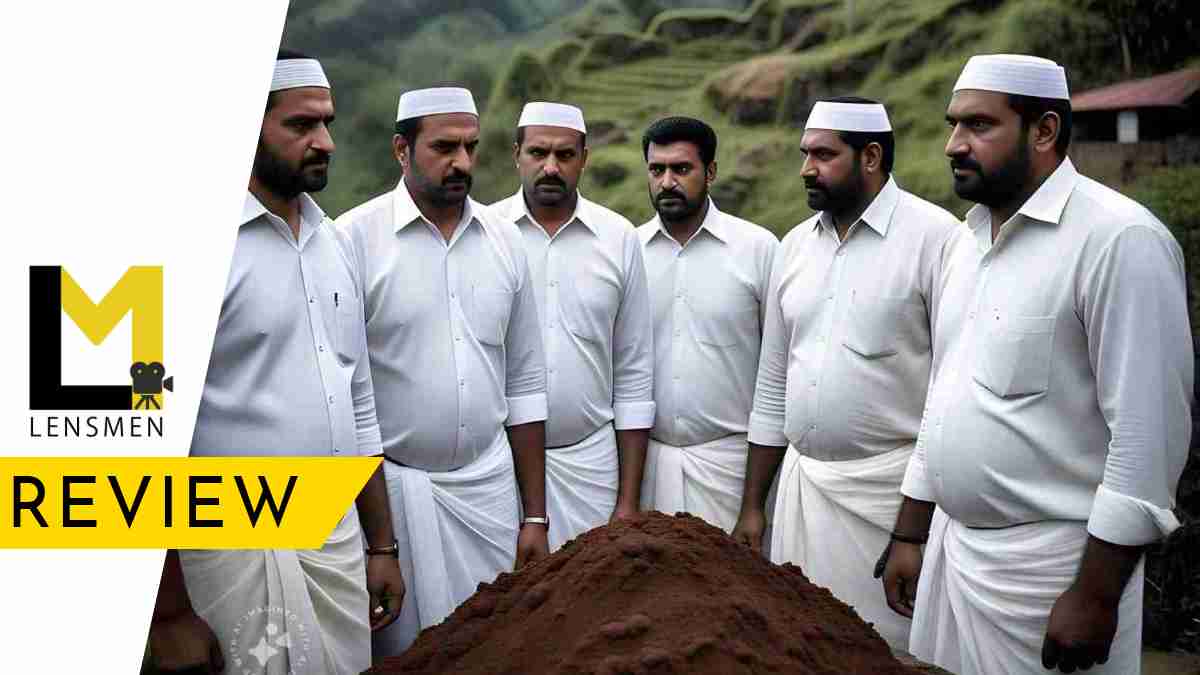Watching Turkish Tharkkam, directed by Nawaz Sulaiman, was a very interesting experience. Even though it is not a fantasy film, the aim here is to be a religious critique that mocks the religious fundamentalists who act like the protectors of the one who protects everything. In terms of craft, the film is undeniably terrible as they have nothing exciting on paper other than these bumper sticker dialogues. Why I said watching this movie was interesting is because a segment of the oppressed category was clapping like there was nobody else in the theater when these fundamentalists were getting trashed, and I sort of realized that when the theme has relatable elements, craft won’t be much of a problem for a certain category of the audience.
SPOILER ALERT! Without revealing the central event in the movie, it is impossible to review this film. And if you have seen the trailer closely, it is not much of a heavy spoiler. Masin is the son of Sulaiman, who is a dry fish vendor. He dies in an accident, and his body gets buried in the Turkish mosque in his village. A while after the proceedings, someone hears sounds coming from the Qabar, and this causes panic among the people, with some asking to open it and some saying it is against religious practices. What we see in the movie is the escalation of this conflict, which leads to a fight among the people of that village.
The one-liner idea of this movie is actually very fascinating. Movies that have criticized blind faith have always used either fantasy or satire genres to convey their politics and stand. If you look at how Nawaz has approached the same topic, you can see that he is using the survival thriller genre to achieve the same result. But the problem is the preachy and clueless writing. The majority of the first half of this 108-minute-long movie focuses on the romantic relationship and the never-mind attitude of Masin. The script just doesn’t know how to show that with nuances. The episodes in the romantic chapter, like the fight with the bicycle gang, the bar fight, etc., look ridiculously sloppy. Almost all the events in that first half featuring Lukman feel like a desperate attempt to squeeze in different things to attain a feature film length for this film.
The “Tharkkam” in the second half is the juicy area of the script. The cinematic challenge in front of Nawaz is how he can delay the process of digging the grave with hurdles that look practical. But when I see the rhetorics of both parties in the movie, which is almost an unnuanced announcement of the makers that they are progressive, I almost felt like uttering the famous dialogue by Garvasis Ashan, “Ninnu Kadhaprasangam Nadathathe Randu Kaalum Thalli Odikkeda.” It is that annoying. When the religious fundamentalists in the movie were getting trashed in the most cinematic style in the climax, I could see a woman in the audience clapping out of sheer happiness. It was actually a weird moment. On one hand, I was happy that somebody was able to enjoy that scene, and on the other, I suddenly realized what may have made her hate those men.
The trapped portion, which is in the movie’s second half, is where Lukman manages to get some areas to show his acting skills. The scenes in which he gets some air to perform are a cringe-fest, without a doubt. Amina Nijam as Nusrat is fine in certain portions of the romance, but when the script forces her to be this cool and bold girl, the attitude just doesn’t have the impact she may have imagined in her head. Harishree Ashokan was able to handle the melodramatic lines given to him neatly. Sunny Wayne, who appears in the final 20 or 30 minutes of the movie, pretty much tries to save it when it shifts to a cinematic style. The elaborate cast of the film that we see in the tussle portions is pretty much doing the highly dramatic style of acting, which unintentionally creates frustration in the minds of the audience, and when they get smacked, you would feel a sense of relief.
The speeches of the delusionally religious leaders who talk about what people will get in heaven if they comply with the religious rule book and what they will have to go through if they don’t have mostly led to social media trolls and memes. Turkish Tharkkam is actually just a movie version of such trolling. While the core intention of the movie is very noble, the filmmaking qualities are really mediocre. It feels almost like a rage room creation of a group of people who wanted to talk about the problems faced by them due to a segment of their community who are reluctant to evolve. Beyond that, Turkish Tharkkam has no cinematic high associated with it.
It feels almost like a rage room creation of a group of people who wanted to talk about the problems faced by them due to a segment of their community who are reluctant to evolve.
Green: Recommended Content
Orange: The In-Between Ones
Red: Not Recommended


